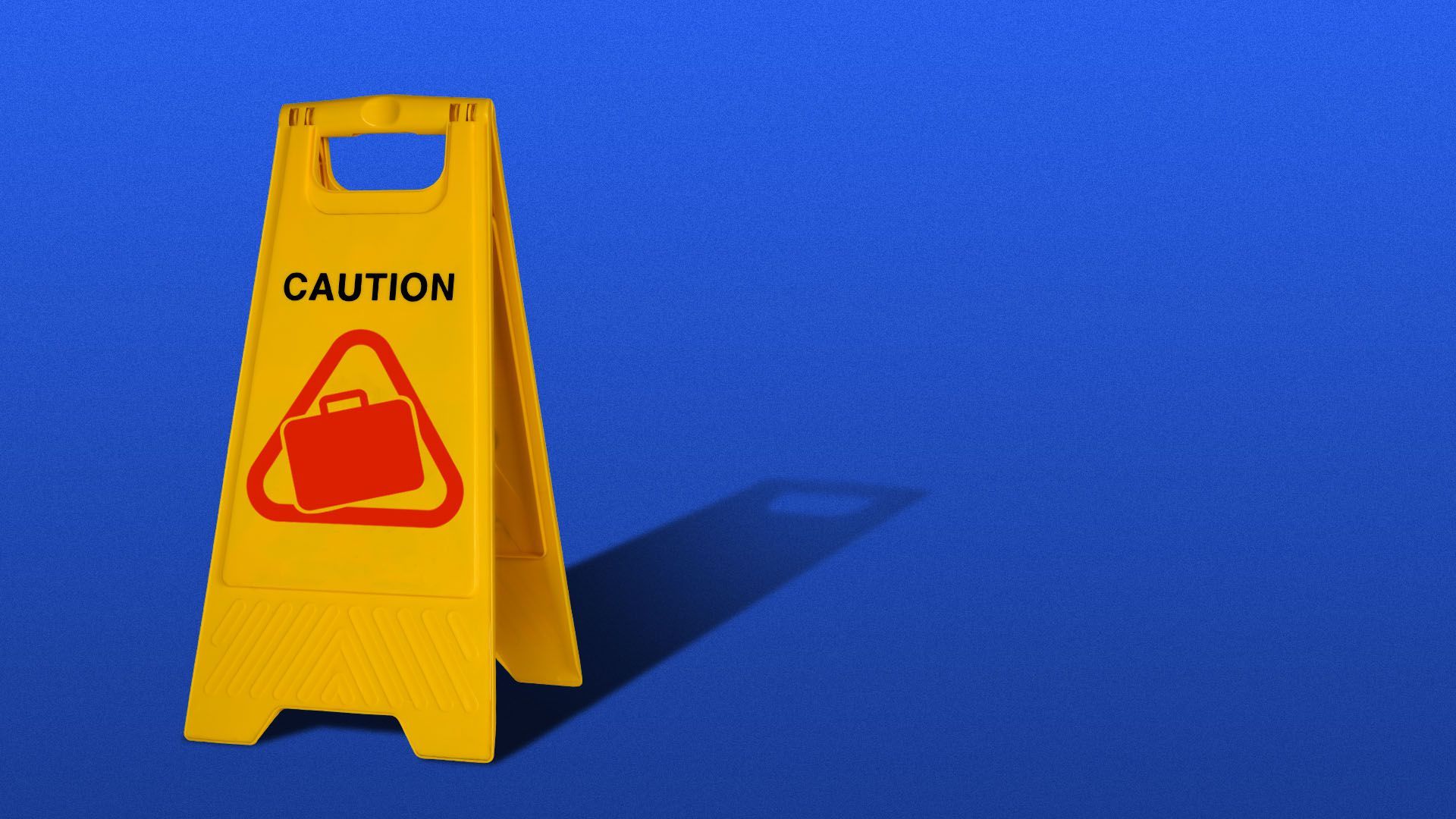When going back to work isn't safe
Add Axios as your preferred source to
see more of our stories on Google.

Illustration: Sarah Grillo/Axios
As states open up, businesses are starting to call their employees back to work, but many don’t feel safe going back.
Why it matters: This is poised to be the next big challenge in the American economy: workers may be forced to chose between their health and their livelihood.
- “It’s a very big problem,” says Andrew Stettner, an expert on worker protections at the Century Foundation. “A lot of people don’t feel safe. They’re anxious, and businesses are starting to reopen, and I think employer behavior will be all over the place.”
The big picture: Under the CARES Act, those who have been urged to quarantine by medical professionals and can show documentation can refuse work and keep receiving unemployment benefits.
But this is a time during which anyone can reasonably feel unsafe returning to work. And it gets a lot more complicated to stay home and keep getting unemployment insurance if a worker cannot provide that doctor's note, says Michele Evermore of the National Employment Law Project.
- In some cases, workers who cannot use the CARES Act to refuse work may be able to fight their employers using the 1988 Stafford Act, which says employees can refuse work if it poses an unusual risk to their health. But they'll stop receiving much-needed unemployment insurance until their cases are resolved.
- As more states reopen throughout the summer, protections for workers may get stronger. For now, "we just don’t have guidelines for safe work," says Evermore. "Workers, at best, may face a lag in benefits. At worst, they will have to go back to work."
And if people are not high-risk themselves, but still feel unsafe returning to work in the public because they're living with someone who is at risk, protections are essentially non-existent, and employers may be able to compel them to come back, experts say. "You can go back, or you can lose your job," Stettner says.
This is already happening across the country. The New York Times spoke to a number of workers who are making extremely difficult, anxiety-inducing decisions of whether to return to work, risking their own health and the health of their family members, or give up income.
- In some states, restaurants and other businesses have chosen to remain closed to keep their workers safe and allow them to keep receiving benefits. But other states are cracking down.
- Iowa and Oklahoma, for example, have directed employers whose workers do not show up to report them to the state so they can take away unemployment benefits.
